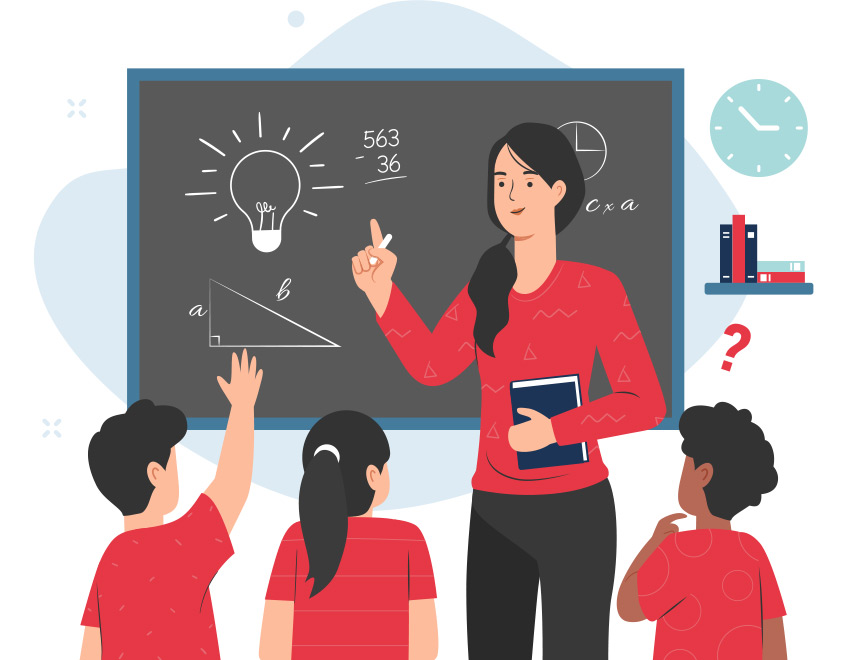Boost Your Child’s Confidence with Primary Science Tuition Singapore
Boost Your Child’s Confidence with Primary Science Tuition Singapore
Blog Article
Discover the Vital Advantages of Comprehending Primary Scientific Research for Young Learners
The value of key science education and learning for young learners prolongs much past plain expertise procurement; it serves as an essential pillar in developing necessary abilities such as crucial reasoning, analytic, and imagination. Engaging with clinical concepts via inquiry-based and interactive activities not only cultivates interest yet also lays the foundation for durable, confident students.
Enhancing Crucial Thinking Skills
Promoting critical assuming skills in young students is necessary for their cognitive advancement and future scholastic success. Crucial reasoning enables youngsters to assess information, assess proof, and make notified choices, which are crucial skills in today's information-rich culture. By participating in scientific questions, young learners can enhance these abilities as they discover concepts with testing, observation, and reasoning.
In main scientific research education, teachers can help with important reasoning by encouraging pupils to ask questions, develop theories, and conduct experiments. This hands-on technique permits children to practice analytical and create logical reasoning skills. As an example, when trainees investigate the residential or commercial properties of products or the concepts of motion, they learn to examine their findings seriously and reason based upon proof.
In addition, conversations and joint tasks can promote critical thinking by offering chances for students to articulate their ideas, challenge presumptions, and think about varied perspectives. By producing an encouraging environment that values query and reflection, instructors can nurture crucial assuming abilities that encourage young learners to become independent thinkers and long-lasting students. Eventually, boosting these abilities lays a robust foundation for their future scholastic endeavors and individual growth.
Fostering Interest and Expedition

Primary scientific research education offers an organized environment where young learners can discover various phenomena via hands-on experiments and monitorings. By enabling them to interact with materials and participate in inquiry-based discovering, teachers create possibilities for kids to develop theories, evaluate their ideas, and reason. Such experiences nurture a feeling of wonder and enjoyment concerning science.

Building Self-confidence in Trouble Addressing
Structure self-confidence in analytic is an essential part of primary scientific research education that equips young learners to approach challenges with durability and creative thinking - primary science tuition Singapore. They create essential skills in important thinking and evaluation when children are motivated to engage with scientific principles with hands-on tasks and inquiry-based knowing. This procedure not just enhances their understanding of clinical principles however additionally promotes a feeling of ownership over their understanding
To construct confidence, teachers must develop a helpful setting where errors are considered as possibilities for development instead of failures. This urges trainees to take threats and explore different options to troubles. By offering scaffolding and assistance, educators can assist trainees navigate complex jobs, gradually enhancing their freedom in analytic scenarios.
Moreover, collaborative discovering experiences, such as team jobs or view it now experiments, can further enhance pupils' self-confidence as they find out to articulate their ideas and pay attention to others' viewpoints. These interactions support social skills and strengthen the idea that analytic is commonly a collective endeavor. Ultimately, growing self-confidence in analytic prepares young learners for future academic challenges his response and equips them with the devices necessary for long-lasting knowing.
Motivating Imagination and Innovation
In the realm of main scientific research education, motivating creativity and advancement is important for growing a vibrant knowing atmosphere. By cultivating a culture where young learners can discover ideas and experiment openly, instructors assist students develop important thinking skills and a passion for exploration. Creative thinking in scientific research motivates kids to ask concerns, develop theories, and take part in hands-on tasks that boost their creativity.
Incorporating flexible tasks and inquiry-based knowing into the curriculum allows pupils to express their special perspectives and solutions. As an example, when charged with fixing an issue pertaining to their environment, students can brainstorm multiple strategies, leading to creative outcomes that showcase their originality. This not just strengthens their understanding of clinical principles but also imparts a sense of possession over their understanding process.
Moreover, creative science education nurtures cooperation amongst peers, as students often share ideas and improve each other's insights - primary science tuition Singapore. This joint spirit advertises not only technology but additionally crucial social skills. Therefore, by prioritizing imagination and technology in primary science education, we empower young learners to believe critically, embrace difficulties, and visualize possibilities, laying a solid foundation for long-lasting discovering and expedition
Getting Ready For Future Discovering Obstacles
Young learners' capacity to browse future discovering difficulties hinges on a strong structure in key science education and learning. This foundational understanding equips pupils with vital thinking abilities and a methodical method to analytical, vital for taking on complex problems in an ever-evolving world. Primary scientific research cultivates inquiry-based understanding, motivating trainees to ask inquiries, discover theories, and engage in hands-on experiments.
As they establish these skills, students end up being proficient at evaluating data, recognizing browse this site patterns, and attracting informed verdicts. Such expertises are essential not just in clinical fields yet likewise in mathematics, engineering, and technology (STEM), where interdisciplinary understanding is significantly critical.
In addition, main scientific research education grows a sense of curiosity and durability in young learners, enabling them to see challenges as opportunities for growth. As they come across and get rid of obstacles in their clinical explorations, they develop confidence in their capability to introduce and adjust.
Ultimately, a solid foundation in primary scientific research not just prepares young students for scholastic quests yet also equips them with the tools needed for lifelong discovering and adaptability in a quickly altering worldwide landscape. By purchasing key science education and learning, we are spending in the future potential of our students.
Verdict
Recognizing primary science is essential for young students, as it fosters crucial reasoning, interest, and creative thinking. Eventually, the benefits of main science education prepare children for future academic pursuits and impart long-lasting knowing behaviors important for flourishing in an ever-evolving globe.
The relevance of primary science education for young students prolongs much beyond plain understanding procurement; it serves as a fundamental column in developing essential abilities such as critical thinking, analytical, and creative thinking. By producing a supportive atmosphere that values query and representation, teachers can nurture critical believing abilities that equip young learners to end up being independent thinkers and long-lasting students. Thus, by focusing on creative thinking and advancement in main science education, we encourage young students to think critically, accept difficulties, and imagine opportunities, laying a strong foundation for lifelong understanding and exploration.
Young learners' capacity to navigate future learning difficulties hinges on a solid foundation in key scientific research education and learning.Understanding primary science is vital for young learners, as it promotes important reasoning, inquisitiveness, and imagination.
Report this page